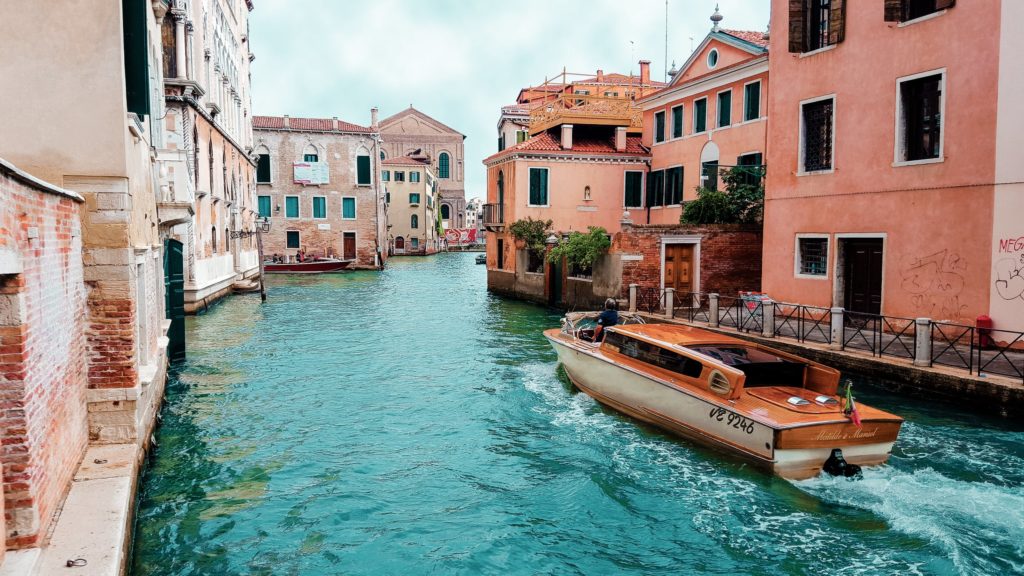
Post-Covid, Brexit and IR35, thousands of UK contractors are looking for a change of scene. With Mediterranean weather and landscapes, alongside a wealth of opportunities and a more relaxed way of life, assignments in Italy present an exciting new self-employment option. In 2022, Italy has more than doubled its foreign worker quota to welcome almost 70,000 skilled workers into the country this year.
Generate’s payroll and contractor management specialists support thousands of contractors across the globe – here’s our guide to starting out as a contractor in Italy.
Everything You Need to Know About Contract Work in Italy
1. Right to Work, Legal Compliance & Taxes
Citizens of any EU country can live and work easily in Italy, though following the UK’s exit from the European Union, British citizens must follow a more comprehensive process. For visits of three months or fewer, British contractors are covered by the Schengen visa waiver, which allows a stay in Italy for up to 90 days in a 180-day period, with some work-related options available in that time period including business meetings, technical training, job interviews and some types of consulting. To stay longer or conduct formal work in this period, British contractors will need to apply for the Schengen visa.
As Italy does not offer short-stay visas like many other European countries, UK citizens will need to apply for a long-term visa and work permit to conduct an assignment in the country. Work permits can be valid up to five years at a time, depending on the type of permit you apply for and receive. Find out more about the types of work permits required to conduct an assignment for a client.
Italian residents are tax assessed on any income worldwide (unless exempt under a double taxation treaty). A person who is not an official resident will only be liable for taxation on income derived directly or indirectly from work or other sources in the country. A person is considered an Italian resident for tax purposes if they have been residing in Italy or have ‘business, economic or social interests’ including employment or self-employment for more than 183 days. The 2021 tax rates for residents and non-residents range from 23% to 43%; regional taxes are added separately dependent on your location, with a small percentage of between 0.8% and 3.33%, and municipal taxes (again in the minimal percentage range) sometimes apply.
Tax deductions can apply for newcomers with certain skills and professions. Self-employed contractors can make written requests to their end clients regarding withholding tax, to increase take-home pay for as many as 15 years, dependent upon situation, profession and end client.
2. Career Opportunities
For the past five years, the Italian government has reported a severe deficit of skills in areas where contract professionals are particularly proficient. The country’s Official Shortage Occupations List includes:
- ICT – Software designers, applications developers, data and systems analysts, and computer programmers
- STEM – Mathematicians, actuaries, statisticians, engineers and particularly electrotechnology engineers
- Healthcare – Medical doctors and nurses across specialisms
- Education – Teachers across ages, ability levels and subjects, and University lecturers
- Marketing, Design & Creative – Public relations specialists, social media managers and green architects.
An early retirement age, lack of graduates in certain subjects, a fast-growing healthcare sector and rapid digital transformation ambitions are all driving shortages of skills – and opportunities for contractors from abroad. Italian businesses across industries are seeking high volumes of skilled Robotics Engineers, Machine Learning Engineers, Cloud Architects, Data Scientists and Cyber Security Specialists, and are actively welcoming the skills of contractors from around the world.
Some of the best job advertising sites to find a new assignment in Italy include:
Those who move to Italy will find a refreshingly different, yet also familiar working culture. The British Embassy states that 66,000 British people currently live and work in Italy, and almost 1 in 3 Italians speaks English, making for an easier language and culture transition than many other countries. Italian business culture is hierarchical with respect to job titles and status, yet flexible and sociable with an emphasis on communication. Working practices are both focused and person-oriented, meaning workers are productive yet also regularly befriend colleagues and spend time together outside of the office.
3. Reasons to Live and Work in Italy
Italian work and life offer a unique experience and a variety of opportunities:
- Work/Life Balance – Officially, a typical week’s working hours in the private sector last from 9.00 am to 1.00 pm and from 2.30 pm to 6.00 pm, Monday to Friday, although in most cases workers are in the office for under 36 hours. The country’s emphasis on family life means just 4% of professionals work long hours, and Italy ranks second on the OECD’s Better Life Index for work/life balance. Italian workers also enjoy 16 public holidays (compared to the UK’s 8) as well as four to five full weeks of holiday time being the norm every year.
- Culture – Home to a wealth of history and sights to explore, Italian landscapes and cities offer something for everyone. Residents can wonder at ancient Roman ruins, enjoy renowned Renaissance paintings and sculptures at museums across the country, and visit world-famous architecture such as the Pantheon, Colosseum, St Mark’s Basilica and Leaning Tower of Pisa. Outdoor activities vary from taking a gondola or canal boat ride through Venice, the city of water, to hiking on cliff paths for picturesque views, strolling through Tuscany’s countryside and climbing Europe’s tallest volcano, Mount Etna.
- Climate – Thanks to its Mediterranean location, the country offers very warm weather and a wide range of beaches across its extensive coastline on which to enjoy the sunshine. Italian residents see up to 180 days of sun per year (around three times as many as London dwellers) and averages of 26-28°C temperatures in the South in summer (compared to average highs of 20-22°C in London’s summer).
Get the Right Support for Your Contracting Career
Generate help thousands of freelancers, interim managers, sole traders and temporary workers around the world. Find out how we could help you with payroll, tax and compliance support.
From tips on upskilling and networking to creating your own long-term plan, discover How to Advance Your Career as a Contractor.











